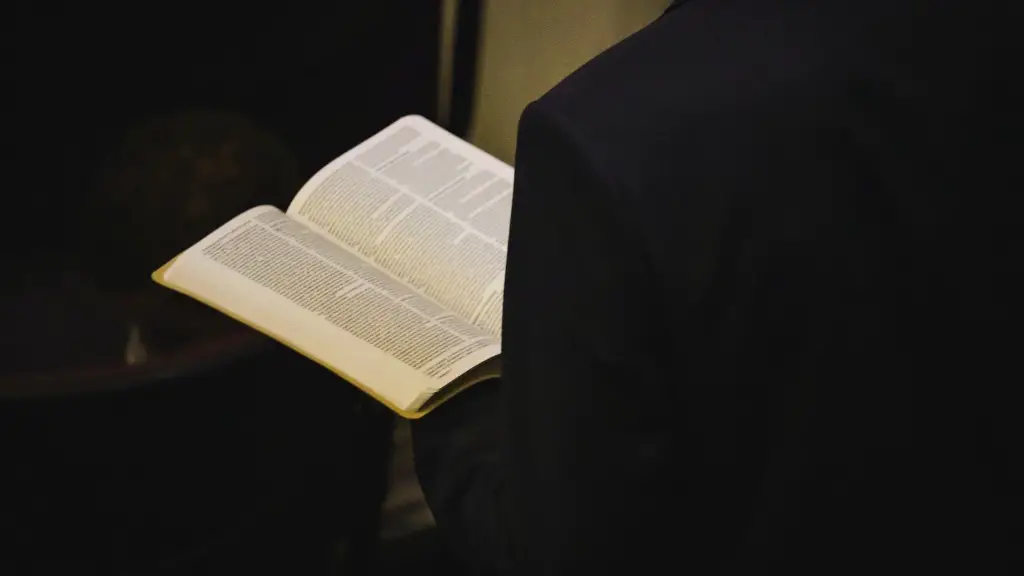Definition of Diviners In The Bible
Diviners are spiritualists who claim to be able to divine or foresee the future through certain methods and disciplines. They are believed to be interpreters of the will of God in the Bible, and therefore often related to the prophetic tradition.
In the Old Testament, diviners are frequently mentioned in terms of condemnation or scorn. They are often seen as charlatans and deceivers, peddling false prophecies or omen reading. Deuteronomy 18:10-14 prohibits divination as part of a list of abominations: “Let no one be found among you who sacrifices their son or daughter in the fire, who practices divination or sorcery, interprets omens, engages in witchcraft, or casts spells, or who is a medium or spiritist or who consults the dead.”
The Role of Diviners in Ancient Israel
Despite the prohibition of divination in the Bible, there is evidence that the ancient Israelites resorted to divination practices in their religious and worldly life. In Judges 4-5, the prophetess Deborah, the Judge of Israel at that time, issues a command to the general Barak to take an army to fight against Sisera, the Canaanite general. The verse says that “the Lorddisciplined Sisera…by the hand of a woman” (Judges 4:9). The woman, who was a diviner, gave Barak the prophesy to go to battle, and he heard her words and followed her advice with success.
There is some disagreement amongst scholars as to the exact role of diviners in Palestinian religion in antiquity. Some view divinators as soothsaying magicians and necromancers, envisioning them as external forces of evil. Others, however, note that Biblical references imply that the insights delivered by diviners were not necessarily seen as evil or foreign to the Israelite people. For example, interpretations of prophetic dreams entailed divinatory activities; Joseph in the Book of Genesis was a an interpreter of dreams.
Divination In The Bible
Divination in the Bible is extended to many different forms. The prophet Samuel was considered to be a diviner, as he was able to discern God’s will when inquiring. The words of the prophet Isaiah, who gave moral and spiritual guidance to Judah, were also interpreted as coming from God. Noah’s sons, Shem, Ham and Japheth, were known as seers as they recieved spiritual revelations. The Urim and Thummin, a pair of objects used to determine God’s will, were consulted by wise and learned people to seek out God’s will.
The Difference Between Diviners and Prophets in The Bible
Though there is an overlap in their roles, prophets and diviners are distinct from one another in their approach to seeking God’s will. Prophets receive their messages supernaturally and often have visions, while diviners resort to supernatural means such as interpreting dreams, omens and the Urim and Thummim.
Prophets are generally accepted without question by their audience, while diviners have to convince their audience that they are speaking the truth. Prophets can offer counsel from God to Biblical characters and testify of His plans and promises, while diviners are more limited in scope, and are seen as messengers of God who help to guide human beings away from evil.
Diviners and Witchcraft in The Bible
In the Bible, the relationship between diviners and witchcraft is complicated; some diviners were actually witches in disguise. While the Bible does not directly address this relationship, there is evidence from other sources that some diviners were actually practicing witchcraft. In Babylonian and Assyrian texts, for example, some reference is made to “seeking out omens” and “determining fates”, as well as “incantations, spells and practices” that can be deemed witchcraft.
It is important to note that there are differences between divination and witchcraft. Divination is a practice of seeking divine insight, while witchcraft is defined as the practice of sorcery and involves black magic and occult practices.
Symbolic Representation of Diviners in The Bible
Diviners in the Bible are often portrayed as negative forces, due to the suspicion that they are practicing witchcraft. In the Books of Kings, for example, Baal’s prophets are depicted as charlatans and cheats. In Isaiah 8:19, the Israelites are called on to “consult not the objects of fortune nor the Things that Never are”, implying that the worship of false gods was seen as a sign of divination.
The symbolic representation of diviners in the Bible is nonetheless nuanced. In the Book of Isaiah, for example, the prophet Isaiah calls for the Israelites to “seek God and his strength, seek the face of the God of Jacob” (Isaiah 8:19). This suggests that seeking out divine insight is a legitimate practice, as long as it is not done in the name of a false god.
Conclusion on Diviners in The Bible
Diviners in the Bible are a complex topic, with many nuances. Despite the Biblical condemnation of diviners, there is evidence that the Israelites sought out divine insight in ancient times. It is also evident that there were differences between diviners and prophets, with diviners relying on supernatural means for guidance, and prophets receiving insight supernaturally. Similarly, there is a difference between divination and witchcraft, as divination is a practice of seeking divine insight while witchcraft involves the practice of sorcery and occult practices. There is also a nuanced symbolic representation of diviners in the Bible; while they are often portrayed in a negative light, they can be seen as legitimate sources of divine insight if the one seeking such insight is dedicated to seeking God’s will.

